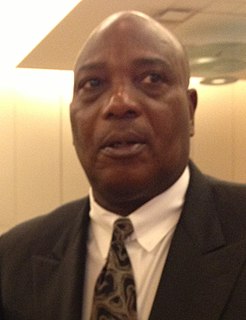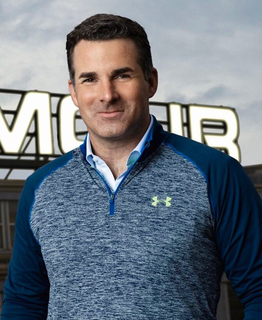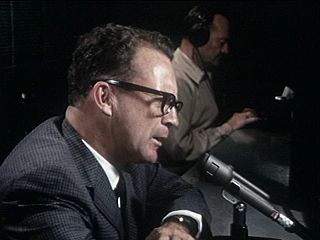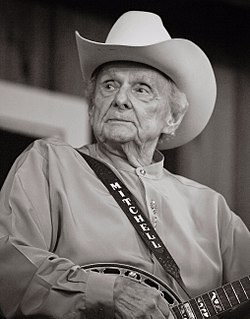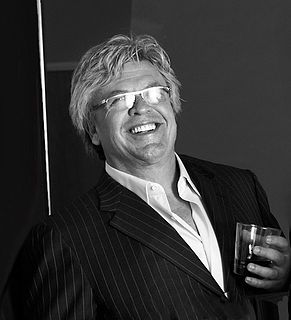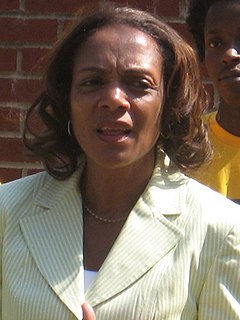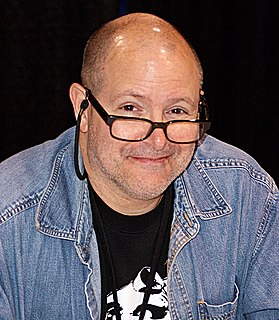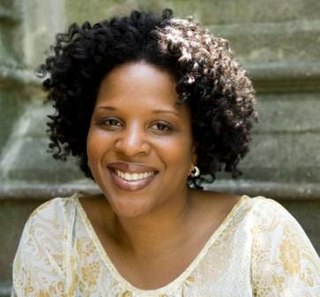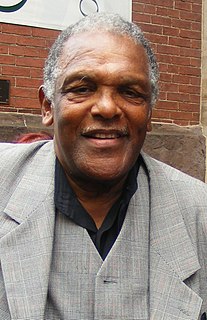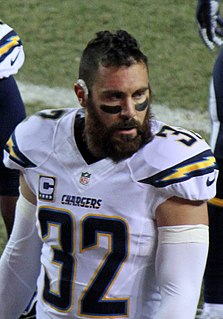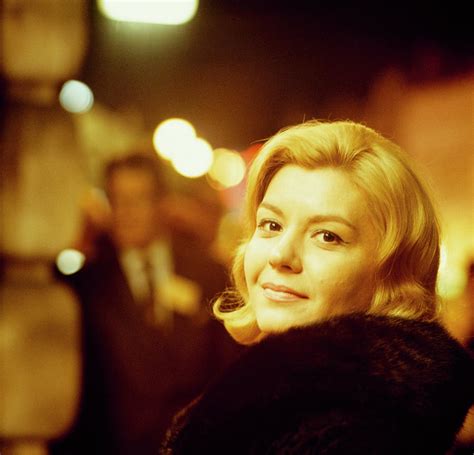Top 344 Baltimore Quotes & Sayings - Page 6
Explore popular Baltimore quotes.
Last updated on April 19, 2025.
People of Baltimore, if you want to simply learn a new trade, if you want to join the Foundry, it's a membership. It's like joining a gym, and you can go and meet other entrepreneurs like you. You can talk about how to get financing. You can take a class on how to sew. You can take a class and say, 'I want to be an electrician.'
So much happened (in 1968) it was hard to keep up with everything. We had Denny McLain's thirty-one victories, Gates Brown's great pinch-hitting in the clutch, Tom Matchick's home run to beat Baltimore in the ninth inning, then Daryl Patterson striking out the side to beat them in the ninth. Excitement every day in the ballpark.
I don't even know if I ever knew - some sweatshop in Baltimore. I knew with my other relatives - some of the women were in the International Ladies' Garment Workers' Union and men were shop boys and things like that. I happened to be in Philadelphia, but the family was in New York. I could see what the union was doing for them.It really saved their lives.
In Baltimore they can't do police work to save their lives. Now because of Freddie Gray they're not even getting out of the car and policing corners - they're on a job slowdown, basically. Right now if the police stopped being brutal, if we got police shooting under control, and the use of excessive force, if we have a meaningful societal response to all that stuff, and the racism that underlies it, the question still remains: what are they policing, and why?
I decided that we'd have to take our chances with the law and get the hell out of Baltimore. I thought of seeking asylum in Canada or Australia or England, but I didn't want to leave the United States, because for better or worse I'm an American, and this is my land; so I decided to fight it out on home ground, and finally we hit upon Hawaii, because of the liberal atmosphere created by its racial admixture, and because of its relatively large population of Buddhists, who are largely nontheistic.
I went to a Catholic high school, which, to this day, I could burn down. And I got great revenge because they had their fiftieth anniversary, andThe Baltimore Sun called me and said, ‘What did you think of your high school?’ And I said, ‘They discouraged every interest I ever had.’ And I saw that in print.
I don't want to live in a world where Donald Trump is the President. He is not doing anything in Baltimore, but I am dedicated to using whatever platform I have to make sure that he is not the President. This is not simply a disagreement about ideas. It's a disagreement about values, and the values that he espouses are values of bigotry and hate, and that isn't OK.
I devoured hot-dogs in Baltimore 'way back in 1886, and they were then very far from newfangled...They contained precisely the same rubber, indigestible pseudo-sausages that millions of Americans now eat, and they leaked the same flabby, puerile mustard. Their single point of difference lay in the fact that their covers were honest German Wecke made of wheat-flour baked to crispiness, and not the soggy rolls prevailing today, of ground acorns, plaster-of-Paris, flecks of bath-sponge, and atmospheric air all compact.
After we did [All In The Family], that ended up being a real love fest all around. Me and Norman, Norman [Lear] and me, Rob Reiner, everybody liked everybody. So about six or seven months later I moved out to L.A. and I got a call that Norman wanted to see me. I came in and he said "ABC has given me a property that they just optioned to make into a TV series. It's from a play called Hot L Baltimore, and I want you to be in it."
The cities of America are inexpressibly tedious. The Bostonians take their learning too sadly; culture with them is an accomplishment rather than an atmosphere; their Hub, as they call it, is the paradise of prigs. Chicago is a sort of monster-shop, full of bustles and bores. Political life at Washington is like political life in a suburban vestry. Baltimore is amusing for a week, but Philadelphia is dreadfully provincial; and though one can dine in New York one could not dwell there.
I think when we show voters in every ZIP code across America that the Democratic Party is fighting for them - I mean, Dr. King said, what good is a seat at the table if you can't afford to buy a hamburger? I think that's a message that resonates everywhere, and we have to boldly put that forth, and we've got to organize around it everywhere so that people understand, in Wisconsin, or in the heart of Baltimore, what we stand for.
It's not enough to celebrate the ideals that we're built on, liberty and justice and equality for all. Those just can't be words on paper, the work of every generation is to make those words mean something, concrete in the lives of our children. And we won't get there as long as kids in Baltimore or Ferguson or New York or Appalachia or the Mississippi delta or the Pine Ridge reservation believe that their lives are somehow worthless.
[My father] came over as an immigrant and didn't know any English. He went to work at a sweat shop in Baltimore. He told me later that this guy was coming around, and the guy seemed to be for the workers, so he signed up. It turned out that guy was an IWW organizer . My father didn't regret signing up; he just really didn't know what was going on.
Eddie Conway is central to my first memories. My parents used to take me to, when it was open, the Baltimore city penitentiary to see Eddie Conway - I was talking to my dad about this recently - from the time I might have been one or two years old. I mean, literally, my first memories are of black men in jail, specifically of Eddie Conway.
I decided that if nobody else was going to do anything to rectify this colossal inequity in taxation, I'd have to do it myself. So I instituted a suit against the city of Baltimore demanding that the city assessor be specifically ordered to assess the Church for its vast property holdings in the city, and that the city tax collector then be instructed to collect the taxes once the assessment has been made.
Years ago, while I was watching a baseball game between the Baltimore Orioles and the Texas Rangers, I remember staring in awe at Cal Ripken. I realized during this game that 'you don't have to be flashy' or have 'power numbers' to be great. It's about the simple things that are the hard things. It's about leadership, work ethic and commitment.
The solution for rising up kids in the income distributionlies is in creating better childhood environments for kids growing up, especially in low income families. And so what means such things like schools, the quality of neighborhoods. If you think about what's gone on in Baltimore, it's a place of tremendous concentrated poverty. People aren't really seeing a path forward and I think revitalizing places like that can have a huge impact, even in the face of globalization and changes in technology.
I remember reading about police arresting this filmmaker making this freaky movie and his name was John Waters. And I was like, wow, someone in Baltimore is doing something creative? I didn't know there were people running off and making eight-millimeter movies. Then I got to New York and realized, oh, there's a whole world of people who do these things. I was utterly bored being in the suburbs, but I didn't know why I was bored.
Anything was better than going to work. All those early tours before we made any money were more like vacations. I don't think it was until 2001 that we pulled our heads out of the sand and were like, "What are we doing?" I don't think Chris realized he was in a band until 2001. He all of a sudden woke up one day and realized he was in a band. He thought he was just recording my solo project. Three albums later, we're in Baltimore trying to figure out what to do with ourselves.
There are jobs here in Baltimore, but the problem is we don't have skilled people. Like the Port Covington initiative - that's 20 years out. I instituted initiatives as mayor that called for equities for minorities, increase minority opportunities, training. It's a good model to duplicate. Everybody doesn't want to go to college. A lot of our vocational programs don't have the latest technology. Students should begin freshman year in high school working on a plan for graduation - either going into an apprenticeship or college.
My running mate, Ajamu Baraka, was out camping out with the homeless in Baltimore . We were both recently at the Standing Rock Sioux encampment where in fact we are both now, a warrant is out for our arrest for participating in civil disobedience to support this very critical stand being taken on behalf of our water, on behalf of human rights, on behalf of our climate.
Baltimore was never intended to be anything other than this original novel that Chris Golden and I did together. There was never any thought of this thing going on and becoming a series. If there's any common thing between these characters, it's that they weren't anything I was seeing in comics. Almost everything I've done is something I wish somebody else was doing, because it's what I'd like to read.
My first few years as TV critic, I would go to parties and people (usually older Posties or ex-Posties who seemed to pride themselves on not watching very much television) would take me by the arm and insist that I watch this show they'd recently starting watching on DVD, about drug dealers in Baltimore.
I have an absolutely unshakable faith in kids, grounded in the fact that I worked for three years in one of the worst public schools in Baltimore, with kids most people would write off because of their backgrounds. But, when I set high expectations, at the end of the day, these kids went from scoring at the bottom on standardized tests, to scoring at the top, despite their unfortunate circumstances.
Nine Years Under is a sparkling debut--- brimming with love and bursting with life. Booker's Baltimore is equal parts The Wire and The Cosby show. She doesn't shrink from the realities of life in an inner city funeral home, but she is also a loving witness, documenting the big hearted community that takes care of its own. Told with compassion, wit, and good old fashioned story telling, Sheri Booker gives us unforgettable characters who will make you laugh right up until they break your heart.
We've actually seen Black man murders [in] many a major city in the United States - New York City, St. Louis, Missouri, from Cleveland to Baltimore. It was those sorts of incidents that were very much prevalent in the forefront of that jury's conscience that allowed them to believe that this man [O.J. Simpson] could have been set up.
When Johnny came to Baltimore the same time I came we were rookies. He did have some pro experience. He did go with the Pittsburgh Steelers and they cut him. I had no pro experience. My thing was that hey I got to make this team. Johnny Unitas wasn't Johnny Unitas.He was just like every other quarterback. You couldn't see the things we know that evolved out of that years later. As the years went on I could really start to see him settle in that position. Fortunately for Johnny U., Weeb Ewbank was there and he worked with his quarterbacks. He had them knowing every aspect of the game.
When I was growing up in Baltimore, the Colts were not just a team that played in the city. It was part of the city. Football players didn't make close to the money they make today and most took jobs in the off-season. Some were mechanics, others worked at furniture stores, and you could find them drinking at a neighborhood watering hole.
I'm a different kind of Republican. I've introduced a five-year balanced budget. I've introduced the largest tax cut in our history. I stood for ten and a half hours on the Senate floor to defend your right to be left alone. But I've also gone to Chicago. I've gone to Detroit. I've been to Ferguson, I've been to Baltimore, because I want our party to be bigger, better and bolder...
The first thing we should be concerned about the BLM movement should be the issues that the Black Lives Matter movement is bringing forward. There's no fundamental platform being brought by activists in Oakland, Baltimore, or New Jersey. The main issues that you see, the commonality between activists all around the country, are trying to deal with the challenges in the criminal justice system, something that is very much central to my work. So my hope is that people stay focused on the urgency to create justice here at home.
[Crack epidemic] definitely has impacted folks in my family, most definitely. I think that's true for most, if not all people, regardless of color, that grew up in and around areas that were closer to the nucleus of the crack epidemic.If you look at Baltimore or D.C., Detroit, Chicago, Oakland, like, Los Angeles.
I was raised in an Italian catholic family in Baltimore, Maryland. Our faith is very important to us, our patriotism, love of faith, love of family, love of country. I took pride in our Italian American heritage and to be the first woman speaker of the House and the first Italian American speaker of the House, it's quite thrilling for me.
Very interesting show. It's "Hotel" with the E missing. Hot L Baltimore. It was about a rundown hotel which had become kind of a residential not quite welfare but almost welfare hotel with a very bizarre collection of people.The desk clerk was played by Jamie Cromwell. That was his first big thing. Conchata Ferrell played April, the main of the two prostitutes, and my character didn't exist in the [stage] show.
I was devastated. I'm still devastated to this day. When talent like that disappears in a flash, you can't believe it. You deny it. Max Roach, who, of course, played with him on all those EmArcy recordings, held a concert in Baltimore for Clifford long after Clifford died. Max was still disbelieving so many years later. The concert was supposed to bring closure. But Max was so outrageously emotional that day. He had quite a few eruptions and was very emotional about what had happened so many years earlier. Like everyone, he remained disbelieving.
